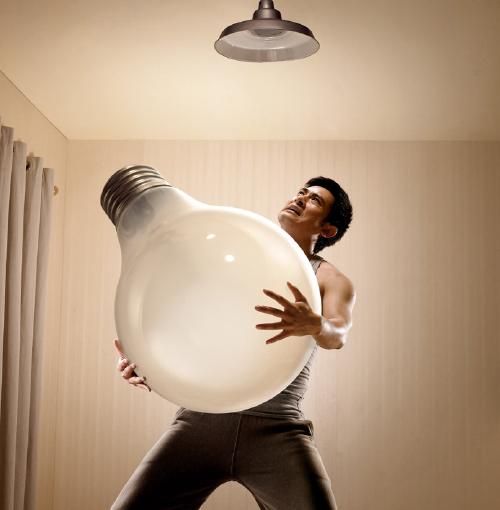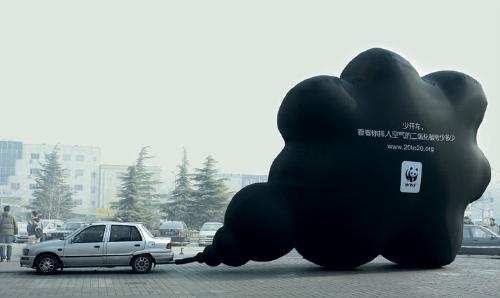Archive for the 'Conservation' Category
CFL downside
One of the easiest things we can do to help conserve energy is to make the switch from incandescent to high efficiency light bulbs (compact fluorescent or LED.) LED lights have some very interesting upside, but are priced out of the market for most people to consider making the switch to them ($40-$100 per bulb.) CFLs on the other hand, are available for less than $3 per bulb and offer 70% energy savings and 13 times the lifetime of comparable lumens incandescent bulbs.
CFLs, like all vapor tubes, need a small amount of mercury to function correctly. That’s the downside of the CFL bulbs because proper disposal becomes very important, managing and cleaning up breakage is equally important. Each CFL has about 5 milligrams of mercury in the bulb and as we all know, mercury is hazardous to humans. So, there is going to be a large business opportunity in the not too distant future for safe recycling of these bulbs to recover the mercury and the glass for reuse.
This being said, CFLs still hold the advantage even in mercury as incandescent light bulbs indirectly, through increased power requirements over the lifetime of the bulb, cause around 12 mg of mercury to be released into the atmosphere through the coal combustion process, so replacing incandescent bulbs with CFLs are still a good thing to do even when factoring the special recycling and clean up efforts required with CFLs.
The other drawbacks to CFLs often cited are light quality, time to maximum lumens, and special use situations. These objections can all easily be over come with proper CFL selection now. There is a CFL bulb available for nearly any use from outside, to spotlight, to dimmable bulbs which emit light levels across the spectrum.
No technology is perfect and available without tradeoff, CFLs are no exception. But on balance, the benefits outweigh the risks and downsides. Let’s hope we see some more aggressive adoption of the technology through the next few years.
Change can be tough

Sometimes it seems like even small changes can be very difficult to realize. This image drives that concept home when we discuss something as simple as changing light bulbs. It’s a seemingly small change to switch an incandescent bulb for an energy efficient compact fluorescent or LED bulb, but for whatever reason, it’s difficult to buy the bulbs and make the change – even though the change provides direct benefit to the active party and to the world at-large.
We recognize that here at Montara Energy Ventures and we reveal a project to help make such small changes visible in the next few weeks. Stay tuned.
Don’t just boycott, take real action for change
As you may have heard, today, May 15th is the national gas boycott day. It’s a great attention ploy and maybe even an interesting symbol of protest. But in the end, all it will do is defer sales until later in the week.
What’s required to really move prices? A change in behavior. If each driver in the US would do the following things over the next year, it could reduce fuel demand by as much as 10%.
The easiest actions you can take to increase your fuel efficiency by 10%:
- Drive the speed limit, the faster you go, the more fuel you burn (and your ticket risk goes down) this yields around 5% fuel efficiency
- Remove unnecessary items from your car, each 100 lbs of weight removed can add up to 2% fuel efficiency
- Don’t idle your car unnecesarily, for any delay longer than a stop light, switch the ignition off
- Whenever you make a trip, combine multiple segments into one eliminating the need for mulitple trips
- Take it easy, hot rod starts and fast braking can decrease fuel efficiency by as much as 33%.
Easy suggestions to increase your fuel efficiency by 10%
- Make sure your tires are properly inflated, wheels balanced, and aligned this will yield around 3% fuel efficiency
- Ensure your car has a clean air filter which could yield up to 5% fuel efficiency
- Keep your car “tuned up” which will yield up to 4% fuel efficiency
- Use the right grade of motor oil, this will yield up to 2% fuel efficiency
More suggestions to increase your fuel efficiency by 10%
- If you must commute, carpool or take public transport
- Buy a more fuel efficient car, a 10mpg difference could save as much as $3,000 per year in fuel
- Avoid “rush hour” travel
- Telecommute to work
Obviously, these suggestions range in cost and effort from essentially zero (change your driving behavior and remove excess weight) to very expensive (buy a more fuel efficient car.) We publish all of them so you can select the actions you want to take to actually change the fuel comsumption over time rather than simply boycotting gas purchase for a day. Not everyone can do everything on this list, but everyone can do some combination of these items to total a 10% reduction. Let’s focus our effort on these pragmatic actions and we’ll see an impact on the price of gas, save yourself money, and oh by the way, we’ll reduce our greenhouse emissions as a bonus.
Comments are off for this post
Visual approach to conservation

This photo was taken in China as a way of promoting conservation. The sponsoring entity, 20to20.org, has all sorts of conservation messages aimed at the Chinese population. On the balloon it says “Drive one day less and look at how much carbon monoxide you’ll keep out of the air we breathe.”
Zero Carbon House

The Zero Carbon House is a low energy demonstration project to show how renewable energy can create a unique living experience on a remote island in a severe climate. A holistic approach has been taken to eliminating household carbon emissions that would normally result from heating and powering the home, running the family car and growing and transporting food.
Interesting systematic thinking from the Scots on a replicable and sustainable design.
Comments are off for this post








